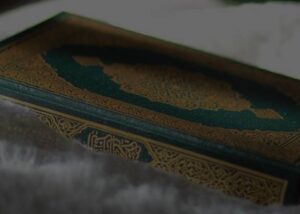Is it permissible for a woman during her menses to recite the Quran in the Maliki Madhab?
Quran
Hadith
Islamic Text
It is permitted to for a woman in menses to recite the Holy Quran as long as the bleeding continues.
بسم الله والحمد لله والصلاة والسلام على سيدنا محمد خير خلق الله وعلى آله وصحبه ومن ولاه
عَنِ النَّبِيِّ صَلَّى اللهُ عَلَيْهِ وَسَلَّمَ قَالَ: اقْرَءُوا القُرْآنَ
The Prophet May Allah (Most High) bless him and send him peace said, ‘Recite the Quran.’ (Sahih al-Bukhari, 5060).
As for the question of whether a woman during her menses is allowed or not to recite the Noble Quran from memory, or by reading it, without touching it, know that the Maliki school, and at its head imam Malik himself have permitted it.
The Qadi Abdul-Wahhab al-Baghdadi, among the early scholars of the school said:
ووجه الجواز قوله عليه السلام: (اقرءوا القرآن). وأقل أحوال هذا اللفظ الإباحة. ولأنه حدث لا يؤمر معه بالوضوء عند النوم كالحدث الأصغر. ولأن بها ضرورة إلى ذلك كضرورة المحدث، لأن الحيض عادة مألوفة تدوم بها الأيام، ولا يقدر على رفعه فيشق عليها الامتناع من القراءة أياماً تباعاً فجاز لهذه الضرورة أن يعفى لها عن المنع كما جاز ذلك للمحدث
“And reciting the Quran is permissible because of the hadith “recite the Quran” [sahih Bukhari – Fada’il al-Qur’an]. And the minimum of what this implies is permissibility, and she -the woman in menstruation- has towards recitation the same need as the one in a state of impurity, since menses is a habit that does not leave her for days and she cannot do anything to remove it, it becomes a hardship to prevent her from reciting for days. This necessity makes the prohibition excused for her, as it is permitted for the one in a state of impurity.” [al-Ishrâf ‘ala masa’il al-khilâf 1/14 – al-Qadi AbdulWahhab al-Baghdadiy].
In his commentary on the Maliki text Tadrib as-sâlik, the imam Muhammad ash-Shaybani ash-Shinqitiy says:
“…and they [the other schools] used as a proof the hadith of Ibn ‘Umar : “Neither the woman in her period recites [the Quran] nor does the one in janâbah” [Abu Dawud, Ibn Majah and at-Tirmidhiy].
But this hadith is weak, as mentioned by Ibn Nujaym in Fath al-Ghaffar and others, and this is a reason for Imam Malik not to act upon it, considering that the default judgment is permissibility until an authentic text prohibits it, and it did not happen.
Also, the difference between the one in menstruation and the one in major impurity is clear, both from a textual and logical perspective :
From the textual point of view, the hadith about the one in major impurity is specific to him and sounder than the one encompassing both.
From the logical perspective, the one in major impurity has the ability to remove this impurity if he finds water, or through tayammum if he is amongst those authorised to do it, unlike the one in menses who cannot lift this state. And if she leaves this “pact” with the Qur’an she will forget it, and the Messenger salla-llahu ‘alayhi wa sallam has ordered to observe our “pact” with it. [Tabiyin al-masalik sharh Tadrib as-sâlik ila Aqrab al-Masalik – 1/284]
This is the relied upon opinion within the Maliki school, as one will find in the Mukhtasar of Khalil, its commentaries, and other relied upon texts like Aqrab al-masalik by al-imam ad-Dardir, or al-Amir’s Majmû’.
It should be noted that this dispensation is valid only as long as she actually sees the blood coming, but whenever it stops the dispensation stops until she performs ghusl.
Answered by Shaykh Saifullah Abu Muhammad (21.12.2021)
See also:
Respecting difference of opinion
See also (video):






